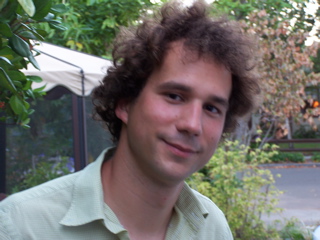France
 By Benoit Fiorina
By Benoit Fiorina
In France, students applying for a PhD must hold a Masters degree in Science. This diploma is issued by the university or by an accredited engineering school after five years of university study.
A student applying for a PhD needs also to find funding which is generally related to a well-defined research topic. Lots of different funding opportunities exist to support a student during his/her PhD. About 25% of all PhD students are funded by the French Research and Education Ministry. Students have the option to ask for a position as a teaching assistant, which requires the student to teach a fixed number of hours. The monthly income of Ministry funding with a teaching assistantship is around 1500 euros. An alternative, which concerns approximately 5% of PhD students, is the CIFRE (Convention Industrielle de Formation par la Recherche) funding where the student is paid directly from industry to work on a specific research project. The topic of the thesis is therefore related to an industrial application. In this case the student is employed by industry for a fixed period and is paid at least 1680 euros per month. The amount generally varies with the position and the average income is around 2000 euros per month. The industrial employer receives financial aid from the French Research and Education Ministry which approximately consists of the half of the salary. As the student usually spends a period of his/her PhD working full-time in an industrial setting, this track provides experience that will be useful for his/her future carrier. Finally, PhD funding can also be issued from various government institutions like counties, environmental agencies, the EU, etc. About 5-10% of physics PhD students don’t have any funding.
In physics, the PhD must usually be defended after three years; this period corresponds generally to the duration of the funding. If the PhD takes longer than three years, the student must obtain additional funding and the formal permission of his/her supervisor to maintain enrollment. By contrast with the US system, a PhD student doesn’t have to attend courses before defending his/her thesis. The dissertation manuscript is sent to two reviewers who allow or deny the defense of the thesis.
After obtaining a PhD, a doctor who wants to pursue an academic carrier will apply to a “Maître de Conference” position, which substantially differs from the postdoctoral research associate position existing in US. In particular the position, which is funded by French Research and Education Ministry, is permanent. Competition for academic positions is very difficult and most of the applicants spend several years as a post doc before succeeding. The “Maître de Conference” is located in a laboratory inside a university where one will teach and conduct research. To become a professor the “Maître de Conference” needs to meet government specifications that allow him/her to supervise other PhD theses.
Another possibility is to work for a public research institute like the CNRS (Center for National Scientific Research). CNRS researchers work in laboratories, which are most often located inside universities. They can also supervise PhD students and be part of the teaching program of the university. In addition, roughly 30-40% of new PhD’s go to work in industry.
Research in France:
http://www.recherche.gouv.fr/
http://www.education.gouv.fr/index.php
CIFRE funding:
http://www.anrt.asso.fr/index.jsp
CNRS:
http://www.cnrs.fr
 Benoit Fiorina received his MsC in fluid mechanics from the Ecole Supérieure des Sciences et Technologies de l’Ingénieur de Nancy and his PhD in turbulent combustion modeling at the Ecole Centrale Paris. He is now working on the simulation of supersonic combustors at the Center for Turbulence Research (Stanford University).
Benoit Fiorina received his MsC in fluid mechanics from the Ecole Supérieure des Sciences et Technologies de l’Ingénieur de Nancy and his PhD in turbulent combustion modeling at the Ecole Centrale Paris. He is now working on the simulation of supersonic combustors at the Center for Turbulence Research (Stanford University).